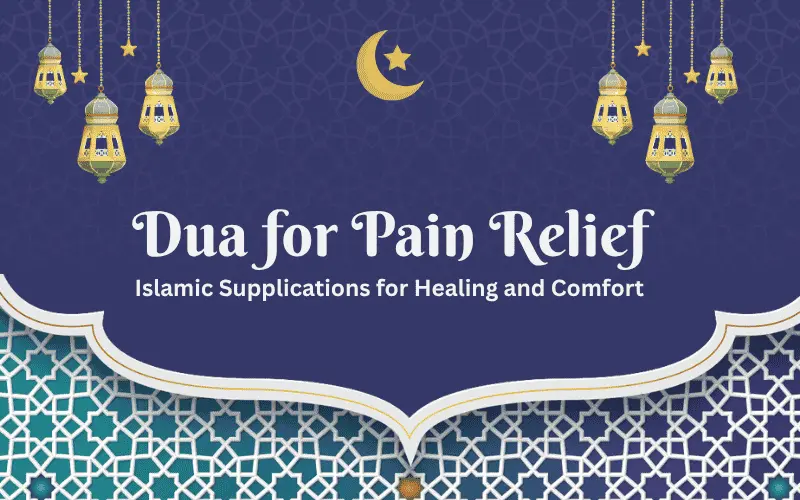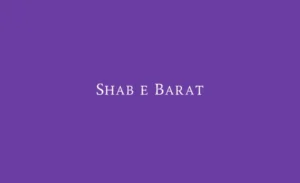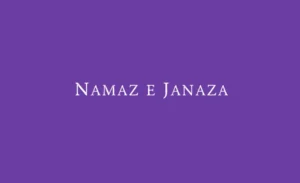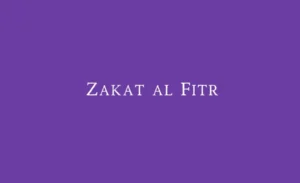Pain, whether physical, emotional, or spiritual, is a universal human experience. In Islam, pain is not just a hardship but also a means of purification and a reminder of our dependency on Allah (SWT). During moments of distress, the best response for a believer is to turn to Allah through dua (supplication). This article explores powerful, authentic duas for pain relief from the Qur’an and Hadith, along with their Arabic text, transliteration, English translation, and usage context.
Whether you’re suffering from a headache, toothache, back pain, or emotional hurt, these Islamic duas offer spiritual healing, comfort, and divine support.
Why Make Dua for Pain?
Making dua during times of pain is not only a form of seeking relief but also an act of tawakkul (trust in Allah). The Prophet Muhammad ﷺ frequently turned to Allah during distress, teaching us that the best remedy for any hardship lies in sincere supplication.
“There is no disease that Allah has created, except that He also has created its treatment.” – (Sahih al-Bukhari, 5678)
04 Duas for Pain Relief from Hadith
Authentic Duas for Pain Relief from Hadith offer powerful, prophetic words taught by the Prophet Muhammad ﷺ to seek healing and comfort from Allah. These supplications address various forms of pain: physical, emotional, and spiritual, emphasizing reliance on Allah’s mercy and power. Backed by strong narrations from Sahih Bukhari, Sahih Muslim, and others, these duas serve as both spiritual remedies and expressions of deep faith. Below are some notable duas (prayers) for pain relief.
1. Dua for Physical Pain (Any Body Pain)
This is the most well-known and widely practiced dua for pain relief, taught by the Prophet ﷺ.
Arabic:
بِسْمِ اللَّهِ، بِسْمِ اللَّهِ، بِسْمِ اللَّهِ، أَعُوذُ بِعِزَّةِ اللَّهِ وَقُدْرَتِهِ مِنْ شَرِّ مَا أَجِدُ وَأُحَاذِرُ
Transliteration:
Bismillah, Bismillah, Bismillah. A’udhu bi ‘izzatillahi wa qudratihi min sharri ma ajidu wa uhadhir.
Translation:
In the Name of Allah (3 times). I seek refuge in the Might and Power of Allah from the evil of what I feel and fear.
Usage: Recite this seven times while placing your hand on the area of pain.
This prophetic dua for pain relief is a powerful Sunnah taught by the Prophet ﷺ for addressing localized physical pain. By reciting “Bismillah” three times and then seeking refuge in Allah’s might and power, a believer invokes divine protection and healing. It is recommended to recite it seven times while placing your hand over the area of discomfort.
2. Dua for Sickness or Illness
Arabic:
اللَّهُمَّ رَبَّ النَّاسِ، أَذْهِبِ الْبَأْسَ، اشْفِ أَنْتَ الشَّافِي، لَا شِفَاءَ إِلَّا شِفَاؤُكَ، شِفَاءً لَا يُغَادِرُ سَقَمًا
Transliteration:
Allahumma Rabb an-nas, adhhib al-ba’s, ishfi anta ash-Shafi, la shifa’a illa shifa’uk, shifa’an la yughadiru saqaman.
Translation:
O Allah, Lord of mankind, remove the harm and cure (him/her), You are the Healer, there is no healing except Your healing, a healing that leaves no illness behind.
Usage: Can be recited for oneself or for someone else who is ill.
This beautiful dua for pain and illness acknowledges Allah as the ultimate Healer and asks for a complete, lasting cure. Taught by the Prophet ﷺ, it emphasizes that true healing comes only from Allah. It can be recited for oneself or on behalf of someone else who is suffering.
3. Dua for Heartache and Emotional Pain
Arabic:
حَسْبِيَ اللَّهُ لَا إِلَٰهَ إِلَّا هُوَ ۖ عَلَيْهِ تَوَكَّلْتُ ۖ وَهُوَ رَبُّ الْعَرْشِ الْعَظِيمِ
Transliteration:
Hasbiyallahu la ilaha illa Huwa, ‘alayhi tawakkaltu, wa Huwa Rabbul-‘Arshil-‘Azim.
Translation:
Allah is sufficient for me, there is no deity except Him. I have placed my trust in Him, and He is the Lord of the Mighty Throne.
Usage: Recite in times of anxiety, grief, or overwhelming emotional pain.
This powerful dua for emotional and spiritual pain reflects complete trust and reliance on Allah. It brings comfort during times of anxiety, grief, or uncertainty by affirming that Allah alone is sufficient and in full control. Reciting it strengthens faith and soothes the heart through tawakkul (reliance on Allah).
4. Dua of Prophet Ayyub (Job) – Dua During Great Suffering
Arabic:
رَبِّ إِنِّي مَسَّنِيَ الضُّرُّ وَأَنتَ أَرْحَمُ الرَّاحِمِينَ
Transliteration:
Rabbi inni massaniya al-durru wa anta arhamur-raahimeen.
Translation:
Indeed, adversity has touched me, and You are the Most Merciful of the merciful.
Usage: For long-term suffering, chronic illness, or emotional trials.
This heartfelt dua of Prophet Ayyub (Job) ﷺ was made during intense and prolonged suffering, showing deep humility and patience. It is a powerful supplication for those facing chronic illness or emotional hardship, calling upon Allah’s unmatched mercy in times of severe adversity. A beautiful example of endurance and unwavering faith.
Other Powerful Duas and Practices for Pain Relief
In addition to specific duas, Islam encourages reciting Surah Al-Fatiha, Ayat al-Kursi, and the Mu’awwidhat (Surah Al-Ikhlas, Al-Falaq, and An-Naas) for protection and healing. These verses are part of ruqyah shariyah (spiritual healing) and offer relief from both physical and emotional pain when recited with sincerity and trust in Allah.
- Reciting Surah Al-Fatiha: Known as a healing chapter
- Ayat al-Kursi (Surah Al-Baqarah 2:255): For spiritual protection
- Surah Al-Ikhlas, Al-Falaq, and An-Naas: For emotional and physical well-being, also the 4 Quls are helpful.
Islamic Understanding: Pain Is a Test and a Mercy
In Islam, pain is not meaningless. It can be a means of purification, forgiveness, and spiritual elevation. The Prophet ﷺ said:
“No fatigue, nor disease, nor sorrow, nor sadness, nor hurt, nor distress befalls a Muslim, even if it were the prick he receives from a thorn, but that Allah expiates some of his sins for that.” – (Sahih al-Bukhari, 5641)
Pain reminds us of our fragility and draws us closer to our Creator.
Tips for Making Your Dua for Pain Relief More Effective
To make your dua for pain relief more effective, begin by praising Allah and sending blessings on the Prophet ﷺ. Use Allah’s beautiful names like Ash-Shāfī (The Healer) and make your supplication with sincerity, humility, and full trust. Choosing blessed times, like during sujood or the last third of the night, enhances the chances of acceptance. Here are some steps to do it:
- Begin with Praise of Allah and Salawat on the Prophet ﷺ
- Use Allah’s Names: Especially Ash-Shafi (The Healer), Ar-Rahman (The Most Merciful), Al-Latif (The Gentle)
- Raise Your Hands with Sincerity
- Make Dua During the Best Times: Last third of the night, between adhan and iqamah, while in sujood.
- Have Yaqeen (Certainty): Believe with a full heart that Allah will answer
The Power of Dua: Turning Pain Into a Spiritual Awakening
Pain, whether physical or emotional, can often feel overwhelming. But through sincere dua for pain relief, we find not just comfort but connection with Allah. The Islamic tradition is rich with prophetic supplications that offer relief, hope, and healing. Let us make dua a part of our daily lives and not just in hardship, but in gratitude too.
“Indeed, with hardship comes ease.” – Surah Ash-Sharh (94:6)
Share This Sunnah – Heal with the Words of the Prophet ﷺ
If you or a loved one is suffering from pain, share this article and revive the beautiful Sunnah of making dua. Healing begins not just with medicine, but with the remembrance of Allah.
FAQs on Dua for Pain Relief
Q1: Can I make dua in my own language for pain?
Yes, you can make dua in any language. Allah understands all languages and looks at your heart.
Q2: Can I recite these duas for someone else?
Absolutely. Making dua for others is highly rewarded and encouraged in Islam.
Q3: How often should I recite the dua for pain?
You can repeat it as often as you feel the pain or discomfort. There is no set limit.







25 Responses
Greetings. So glad to find your blog. highly informative!
love to read quality stuff like this!
Greetings
Nice Read
Sallamu alaykum thank u so much.this duas made out of my distres and discomfort. jazallahu khaira for those that made effort in creating this blog may allah reward u aboundatly
thank you for such useful duas
beautiful prayer duas
You have made some decent points there.
Nice response in return of this query with firm arguments and describing everything concerning that.
Bravo!
I could not resist commenting. Very well written!
Great information
Simple but very accurate information… Appreciate your sharing this one. A must read article!
I am sure this piece of writing has touched all the internet visitors, its really really good article on building up new blog.
This piece of writing gives clear idea in favor of the new users of blogging, that truly how to do blogging.
Thanks for finally writing about Dua for Pain Relief – Islamic Guru
Hey There. I found your blog using msn. This is a really well written article.
I’ll be sure to bookmark it and return to read more of your useful information. Thanks for the post.
I’ll definitely return.
It’s hard to find educated people for this topic, however, you seem like you know what you’re talking about!
Thanks
Hello my loved one! I want to say that this post is amazing, nice written and come with approximately all significant infos. I’d like to see more posts like this .
Great post. Kudos!
I pay a visit every day some websites and blogs to read articles or reviews, but this website gives feature based writing.
Heya fantastic blog!
Good post.
My brother suggested I may like this web site.
He was once entirely right. This put up actually made my day.
You can not consider simply how much time I had spent for this info!
Thanks!
hi! I really like your writing so a lot!
Thank you for another great post.